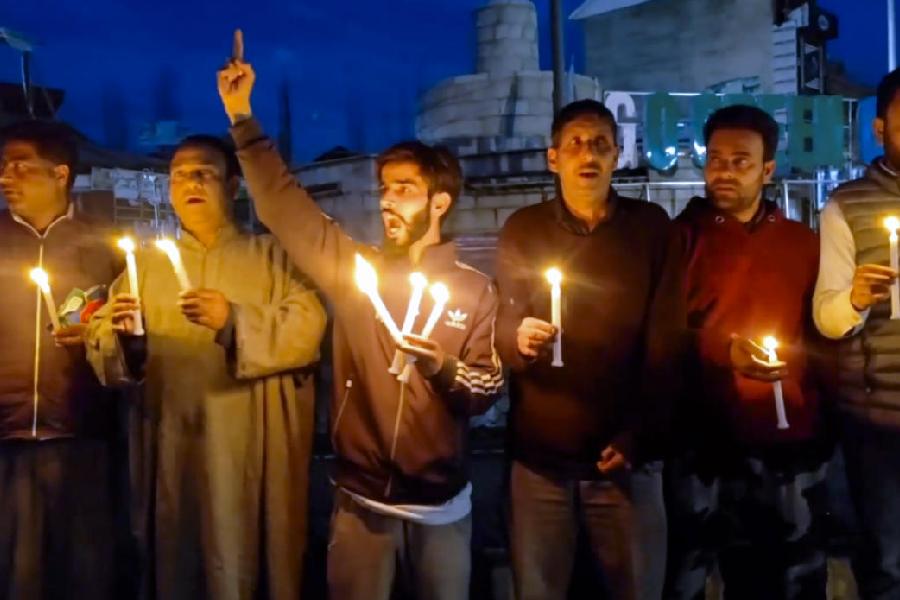Kashmir lies bloodied, once again, by that resilient spectre called terrorism. At least 28 tourists are feared dead — the fatalities could rise further — and several others have been injured after militants spilt blood in Pahalgam, a popular destination for visitors to Kashmir. Lying in the mangled heap of blood and bodies, bent out of shape, is also the Narendra Modi government’s rhetoric of ‘normalcy’ in Jammu and Kashmir. Ironically, a few days before this attack, the lieutenant-governor, Manoj Sinha, had stated that terror’s tentacles in Kashmir had been hacked and that it is Jammu now that is bearing the brunt of bloodletting by militants. Mr Sinha, like his masters in Delhi, has been proven wrong on Kashmir — again. This horror in Pahalgam is likely to assume greater import as it comes during the visit to India by J.D. Vance, the vice-president of the United States of America. The attention that the attack will garner, within and outside the nation, would make it difficult for Mr Modi’s spin doctors to unleash the normalcy narrative with the help of a pliant fourth estate. This is not the only time that militants have targeted tourists in Kashmir in recent times: Reasi, near Vaishno Devi, had witnessed the slaughtering of nine tourists by militants in June last year. These strikes are likely to inflict a deep stab wound on tourism which, in turn, would have an adverse impact on Kashmir’s tourism-driven economy. Pahalgam’s reverberations would also be felt across the border, encouraging Pakistan’s shadowy actors who are inimical to peace and safety in India.
New Delhi’s minders have responded to this tragedy with their usual thunderous rhetoric. The prime minister has stated that the perpetrators would be brought to justice. The Union home minister has rushed to Kashmir. The collective official bluster, which will seek to drown out the wails from the Valley in the days to come, cannot conceal the failures of Mr Modi’s jackboot Kashmir policy. Unilateral authoritarian measures have not only alienated the ordinary Kashmiri but also failed to douse the flames of terrorism. The lieutenant-governor’s puppet regime, which has rendered an elected state government impotent, should not be allowed to escape the blame either. New Delhi needs to go back to the drawing board on Kashmir. But given the sullen circumstances, an immediate return to statehood and the resurrection of the powers of Kashmir’s elected government are unlikely.










